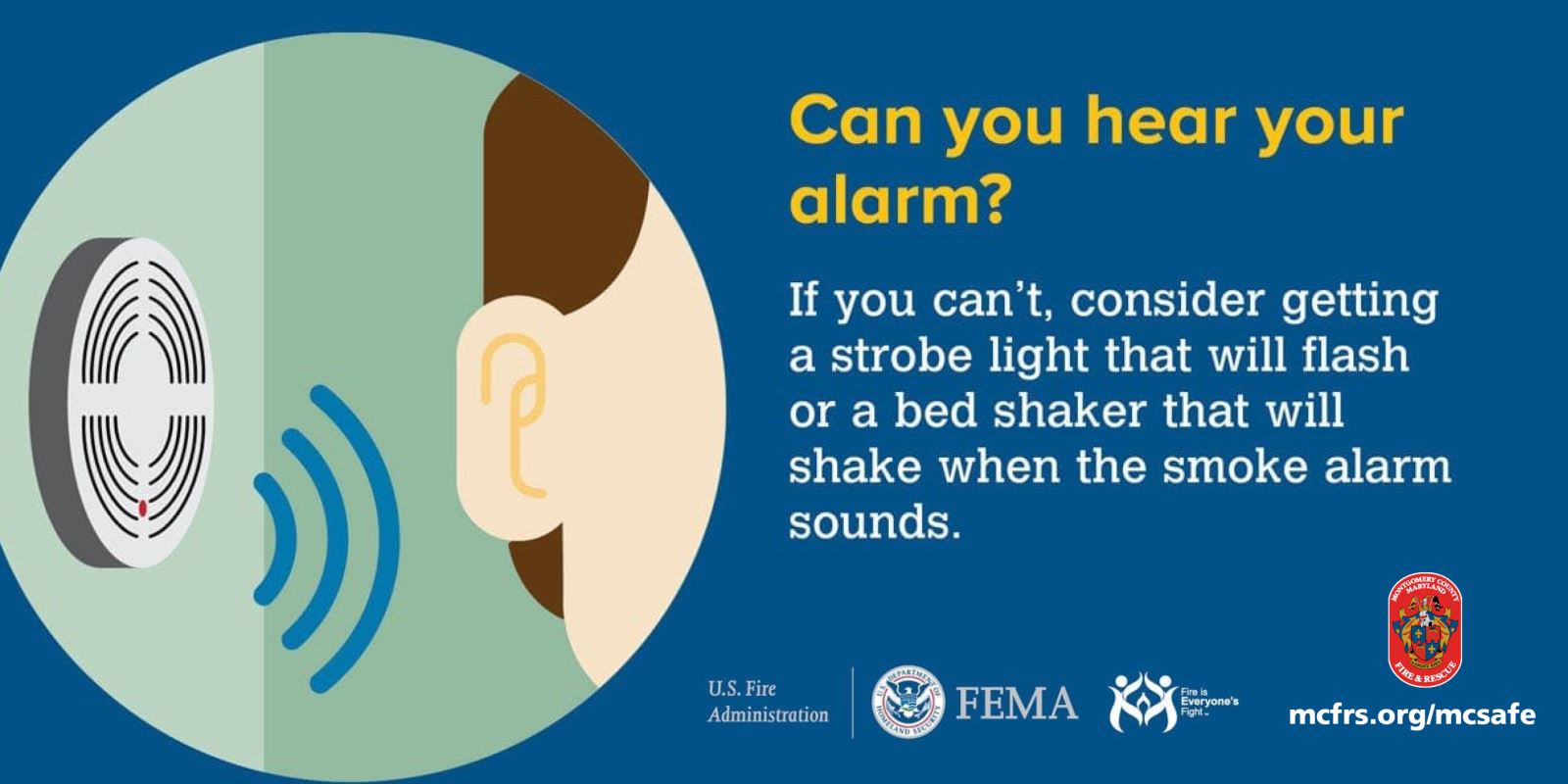Fire Safety for the Deaf and Hard of Hearing
Double Your Chances of Surviving a Home Fire

Smoke alarms save countless lives every year. Most people who die in home fires are not in the room where the fire starts. Working smoke alarms alert people to fire and give them time to escape in a situation where minutes can mean the difference between surviving and not surviving.
However, there are 28 million deaf and hard of hearing Americans who are unable to rely on this life-saving warning sound to alert them of fire and people who are deaf or hard of hearing face a high risk for fire and fire-related injury.
One of the most significant advances designed to address the fire safety needs of the deaf and hard of hearing community is the audible smoke alarm. These specialized alarms are available to Montgomery County residents. The Montgomery County Fire and Rescue Service and the United States Fire Administration (USFA) have teamed up to provide the following important information:
- Decreased hearing may limit a person's ability to take quick action and escape during a fire emergency.
- Depending on physical limitations, many of the actions an individual can take to protect themselves from the dangers of fire may require help from caretaker, neighbor or outside source.
Deaf and hard of hearing persons cannot rely on the traditional audible smoke alarm, but can rely on visual alarms equipped with strobe lights.
- Please fill out the application provided or contact your local fire department for information about obtaining a flashing or vibrating smoke alarm.
- Install a flashing or vibrating smoke alarm on every level of your home. Test all smoke alarms monthly and change the batteries at least once a year. Your chances of surviving a home fire are far greater if you have the initial warning from a smoke alarm.
- Be sure to inform family members, the building manager, or a neighbor of your fire safety plan and practice it with them.
- The Montgomery County Fire and Rescue Service can assist you! We offer free home evaluations, assistance developing an escape plan and help with smoke alarm placement and installation.
- Practice escape plans every month.
- Practice escaping from every room in the home. The best plans have two ways to get out of each room.
- Make sure that windows are not stuck, screens can be taken out quickly and that security bars can be properly opened.
- When a fire occurs, do not waste any time saving property.
- If you must escape through smoke, remember to crawl low, under the smoke and keep your mouth covered.
- Never open doors that are hot to the touch.
- Designate a meeting place outside the building and take attendance.
- Once out, stay out! Remember to escape first, then notify the fire department using the 9-1-1 system or proper local emergency number in your area.

